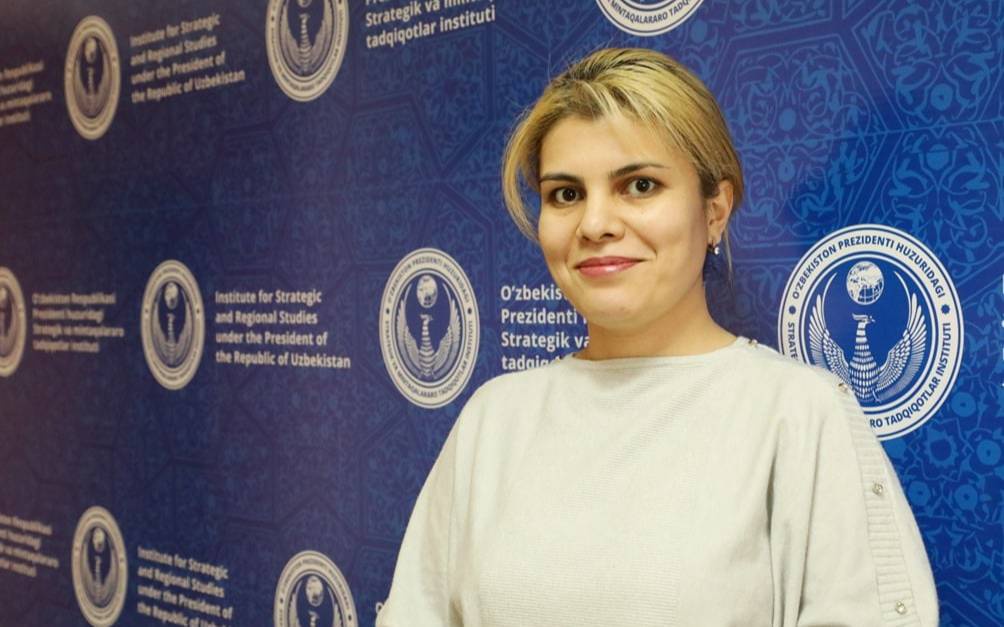Uzbekistan and Turkmenistan jointly unlock transport and transit potential
The state visit of President of Turkmenistan Serdar Berdimuhamedov to the Republic of Uzbekistan was distinguished by an extensive agenda and covered a wide range of cooperation between Uzbek-Turkmen relations.

This is confirmed by the adoption of a solid package of documents, consisting of a Joint Statement and 19 intergovernmental and interdepartmental agreements.
At the same time, the heads of two states paid special attention to the development of cooperation in the transport sector and the implementation of transit opportunities. The parties noted with satisfaction the fact that in 2021, cargo transportation between the countries increased by 17% and expressed their readiness to continue to unlock the potential for mutually beneficial cooperation.
In my opinion, it is obvious that the intention to give momentum to bilateral cooperation in this direction is becoming relevant against the background of the disruption of traditional transport, transit and logistics networks as a result of the pandemic, as well as instability in certain regions of the Eurasian continent.
To this end, following the results of the summit, Tashkent and Ashgabat, in particular, signed an Agreement on the development of transport and transit cooperation, which envisages the provision of the maximum possible transit benefits for transport transportation.
Thus, to facilitate the conditions for the import / export of goods on the territory of Uzbekistan and Turkmenistan, the countries expressed interest in: 1) establishing digital data exchange, developing cooperation between customs and other authorities of the two countries; 2) the development of container traffic from China to the countries of the European Union, etc. As noted, these measures will increase the flow of goods between Uzbekistan and Turkmenistan.
Also, in order to increase export-import transportation by rail, develop logistics corridors and the transit potential of the two countries, a Memorandum was signed on further strengthening cooperation between JSC "Uzbekiston temir yo’llari" and the Agency "Turkmendemyryollary" of Turkmenistan.
In particular, the parties expressed their readiness to: a) organize container transportation along the multi-modal transport corridor "APR-PRC-Kyrgyzstan-Uzbekistan-Turkmenistan-Azerbaijan-Georgia-Turkey-Europe" and back; b) develop cargo transportation along the route "Turkey-Iran-Turkmenistan-Uzbekistan" and back.
In addition, in order to increase cargo and passenger traffic, the Heads of States instructed the governments to develop proposals for the development of bus and rail transportation, as well as to study the issue of resuming direct flights between the two countries.
The implementation of the above new measures will allow our countries to significantly strengthen the transport and logistics interconnectedness, open up new opportunities for integration in this sector, and also contribute to the growth of mutual and regional trade.
Meanwhile, given that the transport sector plays an important role in the economic development of Uzbekistan and Turkmenistan, our countries are interested not only in expanding bilateral relations in the transport sector, but strengthening regional cooperation in this area.
In this context, the initiative of Turkmenistan should be noted, which became the basis for the adoption in 2021 of the UN General Assembly of a resolution on “Strengthening links between all modes of transport to ensure stable and reliable international transport for sustainable development during and after the coronavirus disease (COVID-19) pandemic. )".
In turn, Uzbekistan, with the support of its neighbors in the Central Asian region, including Turkmenistan, as well as partner states from South Asia, has achieved that on July 11 of this year. The UN General Assembly unanimously approved a special resolution “On strengthening the interconnectedness between Central and South Asia”, the adoption of which was initiated by Tashkent in 2021 following the results of the High-Level Conference “Central and South Asia: Regional Interconnection. Challenges and Opportunities”.
The document, in particular, includes provisions on establishing close cooperation between the regions of Central and South Asia in order to reduce poverty, increase food security, expand transport infrastructure and form new international transport corridors that open convenient, sustainable and safe routes to seaports.
At the same time, Uzbekistan advocates the creation, under the auspices of the UN, of a Regional Centre for the Development of Transport and Communications, which is designed to act as a regional regulator of the legal framework, technical norms and standards, actively promoting the implementation of measures and the use of various tools and solutions in organization of international transportation of the participating countries.
In addition, the initiatives and approaches of Uzbekistan and Turkmenistan within the framework of the Consultative Meetings of the Heads of States of Central Asia on the development of cooperation in the transport and logistics sector are consistent and complement each other.
Thus, the President of Uzbekistan at the Second Consultative Meeting (2019) proposed to establish a Regional Council for Transport Communications of the Central Asian countries. This body will contribute to the consolidation of the efforts of the countries of the region to diversify the transport, transit and logistics capabilities of Central Asia.
In turn, Ashgabat, in order to combine the transport potentials of the countries of the region and create a powerful and modern infrastructure during the Third Consultative Meeting (2021), proposed the creation of a government five-sided working group to study the possibilities of forming new transport and communication routes in the directions "Central Asia-Caspian- Black Sea Region" with access to Southern Europe, as well as "Central Asia-Middle East".
It should be noted that these proposals found a positive response and support among the states of Central Asia. As a result, the countries of the region are currently working on these initiatives jointly for their further implementation.
Thus, Uzbekistan and Turkmenistan are consistently taking steps both to expand bilateral cooperation in the transport and transit sector and to strengthen the role of the Central Asian region as a transport and logistics hub. This, in turn, will contribute not only to the diversification of foreign economic activity, but also to the expansion of access to foreign markets of all countries in the region.
Lobar Umarova,
Chief Researcher at ISRS
under the President of the Republic of Uzbekistan






